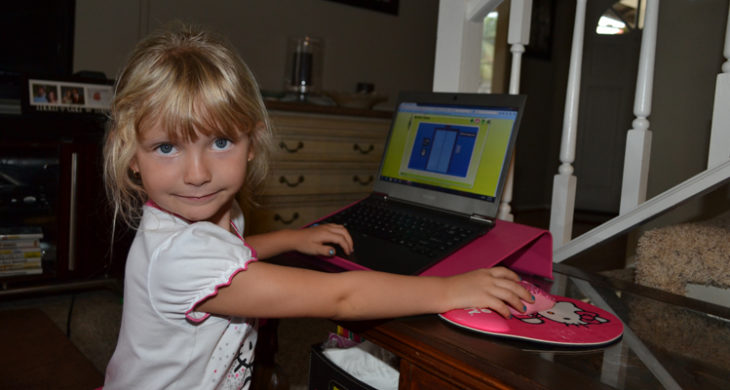He is a smart child and he’s motivated, but he struggles to keep up in school. It’s a frustrating scenario for parents and children, but this divide between ability and academic achievement may be a symptom of an undiagnosed learning disability. There are a number of learning disabilities, the most common being dyslexia, but all involve learning problems that are not related to intelligence or motivation. Children diagnosed with these disorders, approximately 5 percent of the country’s school-age population according to the National Center for Learning Disabilities, have a neurological disorder that affects the way they learn. For these children and the other 15 percent of students who have undiagnosed learning disabilities, school can be a discouraging place. These learning differences will manifest in poor grades if not addressed, so it’s important that parents learn to spot the symptoms of learning disabilities in their children as early as possible. Review the list below and observe your child for any signs of a learning disability. The earlier he is diagnosed, the easier it will be for him to overcome his learning challenges and reach his potential.
Learning Disability Symptoms in Pre-School Students
- Delays or difficulties with pronouncing or recognizing words
- Trouble conveying thoughts or finding the correct words
- Problems with eye-hand-coordination and motor skills, such as using crayons, coloring within the lines, cutting with scissors, tying shoes, and using buttons or zippers
- Memory issues such as learning the alphabet or the days of the week and following instructions
- Slow to socialize with other children
Learning Disability Symptoms in Elementary School Students
- Problems connecting letters with sounds and sounding out words
- Poor spelling and grammar, may spell the same word differently in the same assignment
- Slow to learn math skills and do basic calculations
- Reading comprehension problems
- Difficulties with remembering facts and sequences
- Messy and inconsistent handwriting
Learning Disability Symptoms in High School Students
- Poor and inconsistent spelling
- Slow reader and may avoid reading tasks
- Short term memory problems
- Slow to accomplish tasks
- Trouble organizing classes, schedules and homework
Socially, children with learning disabilities can have trouble making friends, become easily frustrated, can be moody and have trouble accepting criticism. Such children are easily overlooked in today’s busy classrooms, so it is often parents who are the first to notice symptoms of a learning disability in their children. “Early signs of learning disabilities can include developmental delay in language, motor or visual-spatial coordination areas,” explains David Urion, M.D., director of the Learning Disabilities/Behavioral Neurology Program at Boston’s Children’s Hospital. “Children with delayed language acquisition often have later reading or writing troubles, and such children should be followed closely in their early school years.”
If you suspect your child might be suffering from a learning disability, make notes of the signs you have observed and schedule a meeting with your child’s teacher or principal. Provide a written request for an educational evaluation. By law, public schools are required to evaluate all children who may have a disability. Learning Disabilities Association of America offers guidelines on requesting an evaluation. If your child is diagnosed with a learning disability, you can speak to the school about what special education options might be necessary, such as an Individualized Education Program (IEP).
A diagnosis will be helpful in determining a student’s individual learning style so that he can learn and study in the ways that work best for him. A more individualized online learning alternative may also be effective. Helpguide.org offers these guidelines for parents to help kids with learning differences, including studying tips and determining whether students are visual, auditory or kinesthetic learners.
Children with learning disabilities often suffer from low self-esteem, believing they are stupid or slow because they have trouble keeping up in school. Getting an early diagnosis and teaching children how to overcome their learning challenges will go a long way to improve confidence and instill a love of learning. A learning disabled child is clearly in good company, as Winston Churchill, Albert Einstein, Ludwig van Beethoven, Thomas Edison, Leonardo da Vinci, John Lennon and Steve Jobs were all extraordinarily successful, despite or maybe because of their dyslexia.
Image Credit – Phil Roeder / CC by 2.0
,










